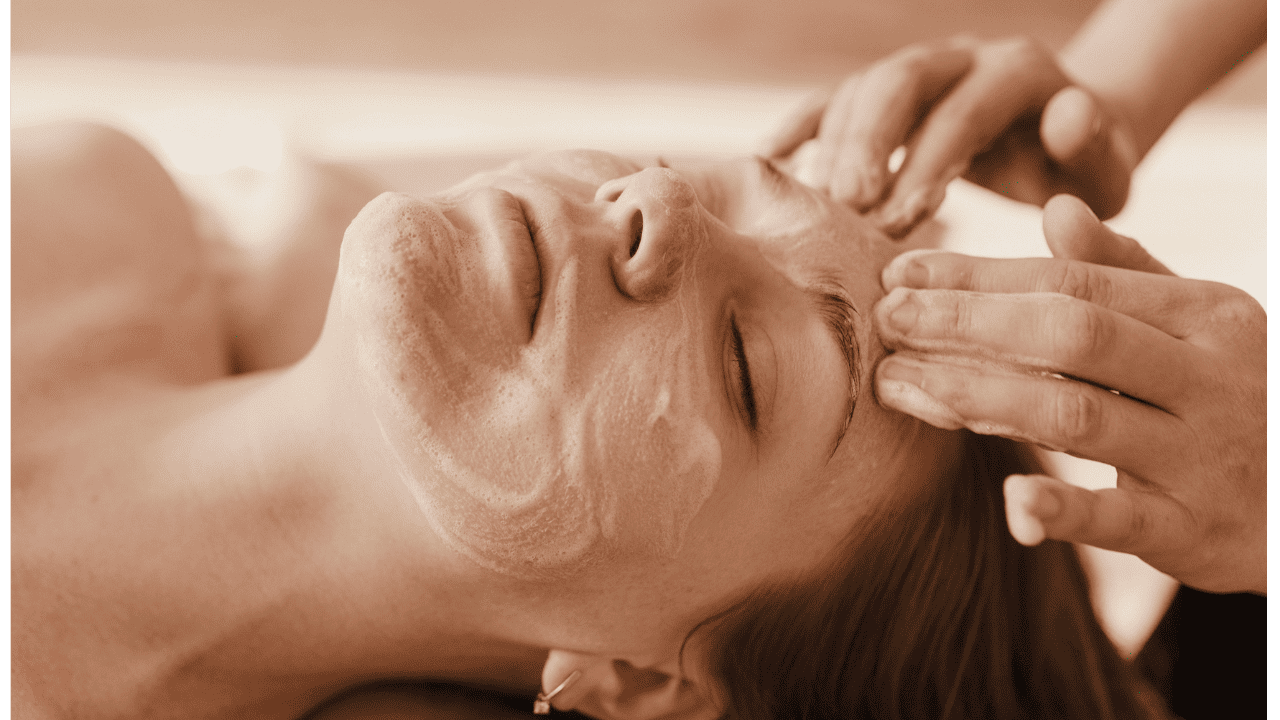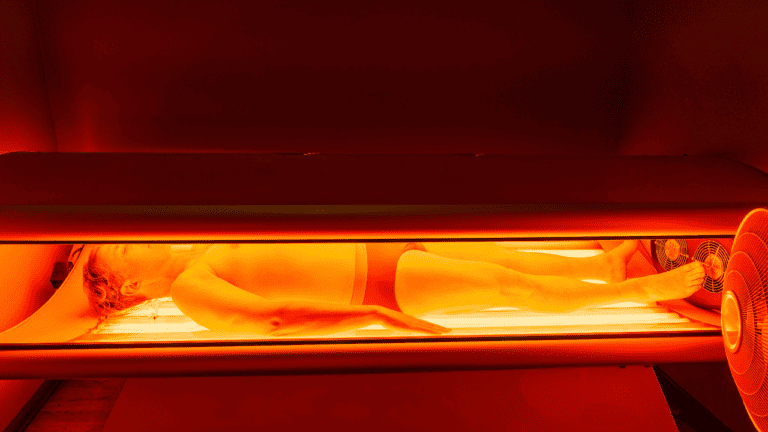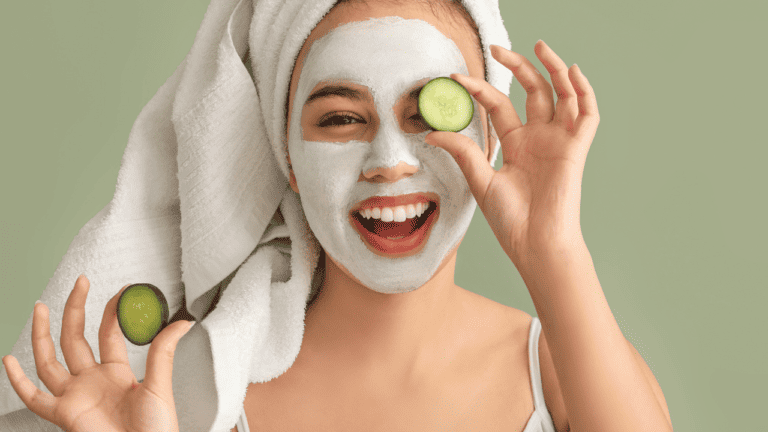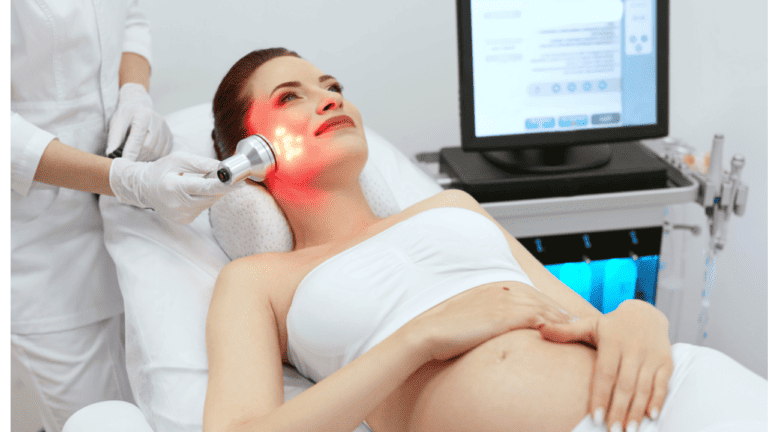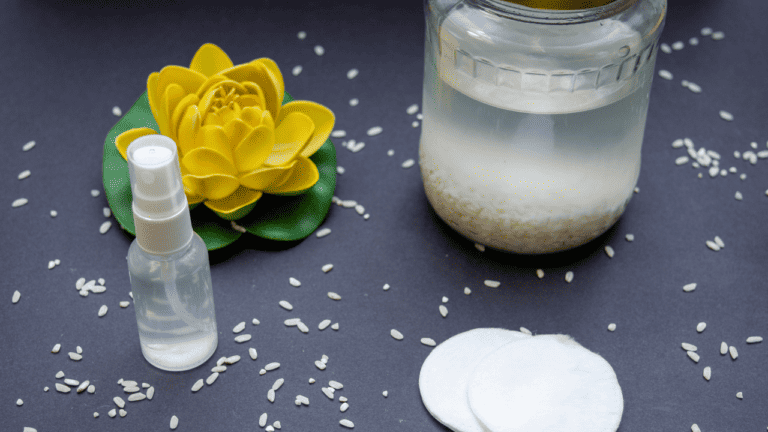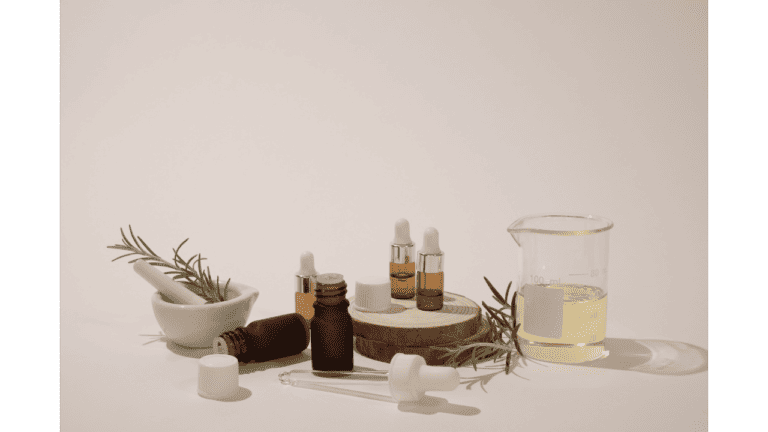When should one start a skincare routine? This is a question that many people ask themselves, especially those who are new to skincare. The answer is simple: start as early as possible. Skincare is not just about looking good, but it’s also about protecting your skin from damage and keeping it healthy.

Understanding your skin type is the first step in developing a skincare routine. Everyone’s skin is different, and what works for one person may not work for another. By knowing your skin type, you can choose products that are tailored to your specific needs. Essential skincare steps include cleansing, toning, and moisturizing. These steps help to remove dirt and oil from your skin, balance its pH, and keep it hydrated.
Targeted treatments and serums can be added to your routine to address specific skin concerns, such as acne, hyperpigmentation, or fine lines and wrinkles. Advanced skincare tips include using sunscreen daily, exfoliating regularly, and getting enough sleep. Frequently asked questions about skincare include how often to use certain products, how to choose the right products, and how to deal with specific skin concerns. By following these tips and developing a skincare routine that works for you, you can achieve healthy, glowing skin at any age.
Key Takeaways
- Start a skincare routine as early as possible
- Understand your skin type and choose products accordingly
- Follow essential skincare steps and consider targeted treatments and advanced skincare tips for optimal results.
Understanding Your Skin Type

Taking care of your skin is an important part of your overall health and well-being. But when should you start a skincare routine, and how do you know what products are right for you? Understanding your skin type is the first step in developing a skincare routine that works for you.
Identifying Your Skin Type
There are four main skin types: oily, dry, combination, and sensitive. Identifying your skin type is important because it will help you choose the right products for your skin and avoid products that might irritate or damage it.
-
Oily skin: Oily skin is characterized by an overproduction of oil, which can lead to clogged pores and acne. If you have oily skin, you may notice that your skin looks shiny or greasy, especially in the T-zone (forehead, nose, and chin).
-
Dry skin: Dry skin is characterized by a lack of oil, which can lead to flakiness, itching, and irritation. If you have dry skin, you may notice that your skin feels tight and uncomfortable, especially after washing.
-
Combination skin: Combination skin is a mix of oily and dry skin. If you have combination skin, you may notice that your T-zone is oily, while the rest of your face is dry.
-
Sensitive skin: Sensitive skin is easily irritated by products, weather, and other factors. If you have sensitive skin, you may notice that your skin is easily red, itchy, or inflamed.
Skincare for Different Skin Types
Once you have identified your skin type, you can choose products that are specifically designed for your skin. Here are some general tips for each skin type:
-
Oily skin: Look for products that are oil-free and non-comedogenic (won’t clog pores). Use a gentle cleanser twice a day to remove excess oil, and use a lightweight moisturizer to keep your skin hydrated without adding more oil.
-
Dry skin: Look for products that are hydrating and moisturizing. Use a gentle cleanser once a day to avoid stripping your skin of its natural oils, and use a rich moisturizer to keep your skin hydrated.
-
Combination skin: Use a gentle cleanser twice a day, and use a lightweight moisturizer on the dry areas of your face and a mattifying moisturizer on the oily areas.
-
Sensitive skin: Look for products that are fragrance-free and hypoallergenic. Use a gentle cleanser once a day, and use a moisturizer that is specifically designed for sensitive skin.
In conclusion, understanding your skin type is the first step in developing a skincare routine that works for you. By identifying your skin type and choosing products that are specifically designed for your skin, you can keep your skin healthy, hydrated, and glowing.
Essential Skincare Steps

Skincare is an essential part of maintaining healthy skin, and it is never too early to start taking care of your skin. There are three essential steps that should be included in everyone’s skincare routine: cleansing and exfoliation, toning and moisturizing, and sun protection.
Cleansing and Exfoliation
Cleansing and exfoliation are the first steps in any skincare routine. Cleansing removes dirt, oil, and makeup from the skin’s surface, while exfoliation removes dead skin cells, which can clog pores and lead to breakouts.
A gentle cleanser should be used twice a day, morning and night, to remove impurities from the skin. For exfoliation, a chemical exfoliant is recommended over a physical scrub, as it is gentler on the skin and more effective at removing dead skin cells.
Toning and Moisturizing
After cleansing and exfoliation, toning and moisturizing are the next steps in a skincare routine. Toners help to balance the skin’s pH levels and prepare the skin for better absorption of moisturizers. Moisturizing helps to hydrate the skin and prevent dryness.
A toner should be applied to the skin after cleansing and before moisturizing. Look for a toner that is alcohol-free and contains hydrating ingredients such as hyaluronic acid. For moisturizing, a lightweight, non-comedogenic moisturizer should be used to avoid clogging pores.
Sun Protection
Sun protection is the final step in any skincare routine. UV rays from the sun can cause premature aging, dark spots, and even skin cancer. It is important to use a mineral sunscreen with at least SPF 30 to protect the skin from harmful UVB rays.
Sunscreen should be applied to the face and neck every morning, even on cloudy days. It is important to reapply sunscreen every two hours if you are spending time in the sun or sweating.
In conclusion, these essential skincare steps should be included in everyone’s skincare routine to maintain healthy and hydrated skin. By following these steps, you can prevent premature aging and protect your skin from harmful UV rays.
Targeted Treatments and Serums

When it comes to skincare, targeted treatments and serums can be used to address specific concerns. These products are formulated with potent ingredients that can penetrate deeper into the skin, making them effective in treating various skin issues.
Addressing Specific Concerns
Targeted treatments and serums can be used to address a wide range of concerns, such as acne, hyperpigmentation, fine lines, and wrinkles. For example, salicylic acid and AHAs/BHAs are commonly used in spot treatments to combat acne breakouts. Retinol and retinoids are effective in reducing the appearance of fine lines and wrinkles, while vitamin C and antioxidant serums can help brighten the skin and protect it from environmental stressors.
Hyaluronic acid is another popular ingredient in serums that can help hydrate the skin and improve its texture. Collagen is also commonly found in anti-aging products, as it can help improve skin elasticity and reduce the appearance of fine lines and wrinkles.
The Role of Serums
Serums are lightweight and fast-absorbing, making them an excellent addition to any skincare routine. They are formulated with high concentrations of active ingredients, allowing them to penetrate deeper into the skin. This makes them more effective than traditional moisturizers.
Serums can be used in conjunction with other skincare products, such as moisturizers and sunscreen, to provide a comprehensive skincare routine. They can also be used alone, depending on the specific concerns of the individual.
In conclusion, targeted treatments and serums can be an effective way to address specific skincare concerns. With the right ingredients and formulation, they can help improve the overall health and appearance of the skin.
Advanced Skincare Tips
Taking care of your skin is important at any age, but it becomes increasingly important as you get older. Incorporating advanced skincare tips is a great way to see visible improvements in your skin’s texture, tone, and overall health. Here are a few tips to consider:
Incorporating Masks and Peels
Masks and peels are a great way to give your skin a boost of nourishment and hydration. Sheet masks, in particular, are a popular choice as they are easy to use and come in a variety of formulas. Look for hydrating formulas that contain nourishing ingredients such as honey and hyaluronic acid. Peels, on the other hand, are great for exfoliating dead skin cells and promoting cell turnover. Incorporate a gentle peel into your routine once or twice a week to see visible improvements in your skin’s texture and tone.
Understanding Ingredients and Formulas
Understanding the ingredients and formulas in your skincare products is key to achieving your desired results. Look for products that contain active ingredients such as retinol, vitamin C, and glycolic acid. These ingredients are known for their ability to promote cell turnover, reduce the appearance of fine lines and wrinkles, and improve skin texture. Additionally, consider incorporating a face oil into your routine. Face oils are a great way to nourish and hydrate the skin, and can be used alone or layered under your moisturizer.
By incorporating these advanced skincare tips into your routine, you can achieve visibly improved skin. Remember to always patch test new products and formulas before incorporating them into your routine, and to consult with a dermatologist if you have any concerns.
Frequently Asked Questions
What age is appropriate to begin a skin care routine?
The ideal age to start a skin care routine is during adolescence, around 12-13 years old. At this age, hormonal changes can lead to acne and other skin problems, making it important to establish a good skin care regimen. However, it’s never too late to start taking care of your skin. Even if you’re older, you can still benefit from a good skin care routine.
How can a beginner establish an effective skin care regimen?
Establishing a good skin care routine can be overwhelming for beginners. However, it’s important to keep it simple and not to overdo it. A basic routine should include cleansing, moisturizing, and sun protection. Cleansing helps remove dirt and impurities from the skin, while moisturizing helps keep the skin hydrated and soft. Sun protection is important to prevent sun damage and premature aging. It’s also important to choose products that are suitable for your skin type.
Are there benefits to starting a skincare routine during adolescence?
Starting a good skin care routine during adolescence can have several benefits. It can help prevent acne and other skin problems, and also establish good habits for the future. A good skin care routine can also help improve self-esteem and confidence, which can be especially important during the teenage years. Additionally, starting a skin care routine early can help prevent premature aging and other skin problems later in life.
